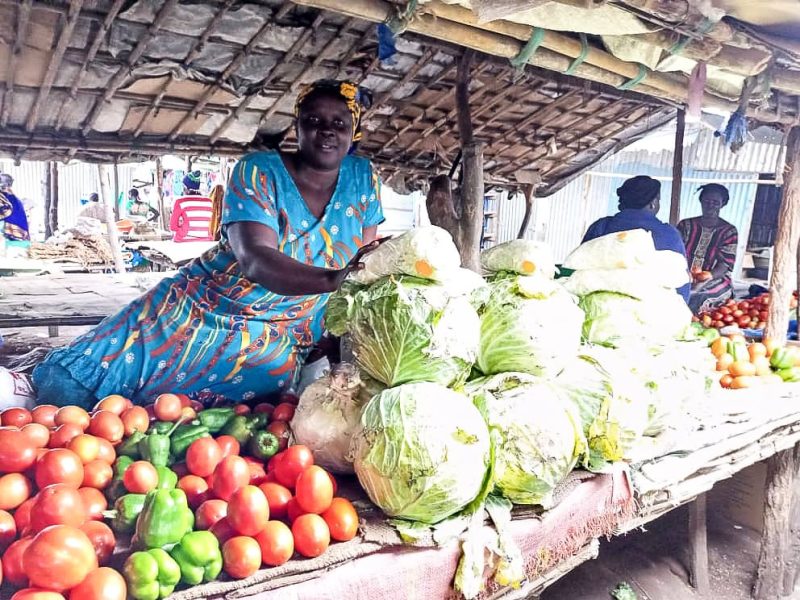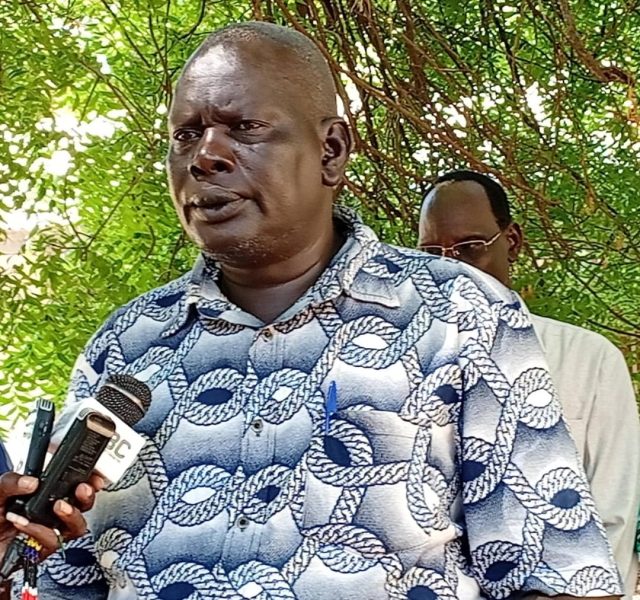
As South Sudan grapples with worsening economic crisis that has left civil servants unpaid for months, women are emerging as a silent force, shouldering the burden of families and communities.
For nearly a year, civil servants have faced delayed or absent salaries, a situation attributed to economic instability coupled with disruptions to oil revenues.
While the government has recently resumed monthly payments, salary arrears persist, and the financial hardship remains.
The burden has fallen on women, forcing them to step up to just provide for their families. Many have turned to informal work selling vegetables, second-hand clothes, tea, and other small goods to keep their households afloat.
These efforts, according to Autoneit Benjamin Buba, Information Secretary of the South Sudan Workers Trade Union Federation, are not only helping families survive but are also vital to the informal economy.
She said these vital roles women play should be recognized.
“There have been many achievements by women in these hard times,” Autoneit said in an exclusive interview. “You’ll find women on the streets of Juba doing small businesses just to ensure their children can attend school. It’s a testament to their strength and determination.”
Noting that salaries are too low while market prices are very high, Autoneit urged the government to increase civil servant wages.
Autoneit further criticised the government’s failure to pay civil servants on time, describing the situation as “untenable and unjust”, especially as some states have reportedly gone unpaid since last year.
She appealed to the government to implement the plan to pay salaries on the 24th of every month, as stated by the Vice President and the Chairperson of the Economic Cluster.
The country’s ongoing inflation and depreciating currency have made it increasingly difficult for public workers to afford basic necessities, including food, transport, and school fees.
This week, the government announced that South Sudan’s crude oil has successfully reached the marine terminal at Port Sudan after nearly a year’s halt, a development that signals potential economic relief.
Autoneit remained hopeful that revenues from the petroleum sector would soon be directed towards ensuring regular monthly salaries
“We hope that revenues from the petroleum sector will soon be directed toward ensuring regular monthly salaries,” Autoneit said.
In a message of solidarity, Autoneit encouraged workers to remain strong: “Happy International Labour Day to all workers; we pray that things improve and civil servants begin receiving timely payments again, just like before.”
Joining the call for recognition of women’s contributions was Suzan Taban, a civil servant, who highlighted both the struggles and resilience of women in public service and the non-profit sector.
“There are a lot of challenges that women in government and NGOs are facing, from delayed salaries to harassment,” Suzan said. “So today, we need to celebrate the success of women despite all these difficulties.”
Suzan urged her fellow workers to stand up against injustices in the workplace: “I stand in solidarity with all the labourers in the country who have faced harassment at work. We need to report all forms of abuse to find lasting solutions.”
“To all the women in the country who are struggling, continue until we achieve what we want for the betterment of our country,” Suzan said.
Their resilience became a central theme as the union marked International Labour Day.

Speaking at a press conference marking Labour Day, Agasio Akol Arop, Deputy Chairperson of the South Sudan Workers Trade Union Federation, underscored the resilience of public sector workers operating under extreme conditions.
“Our civil servants should be honoured for their commitment and resilience in delivering services under tough conditions,” Arop said.
He also stressed the need for stronger protections, adding, “Labour laws must be respected, and children must be protected from labour exploitation.”
Arop called for comprehensive social security coverage that includes workers in the private sector and NGOs.
Identifying key issues requiring immediate attention, Arop cited inflation, low pay, and the absence of a minimum wage law as urgent issues that must be addressed.
“There is low pay across the country due to inflation and the weakening of our local currency against the dollar. The current salaries are simply not enough for workers to cover basic needs or pay school fees,” he said.
Labour Day, observed as a moment for both reflection and demonstration of resilience, workers in South Sudan are calling for stronger government action to protect their rights and improve their living conditions.

